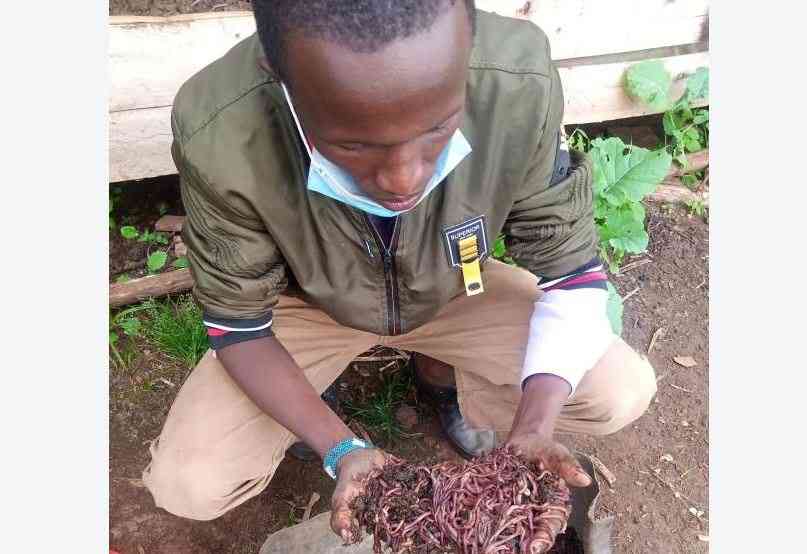
George Muturi Kamau, founder of Comfort Worms and Insects began his company 2014, at the time it was known Agritech Organic Farm, he rebranded to Comfort Worms and Insects in 2018 and has not looked back since.
What inspired you to start farming worms?
After completing high school, I got into chicken farming as I waited to join university. Along the way, I realised I could not sustainably keep chicken, get them producing eggs and make a profit due to the high cost of feeds. This drove me into looking for ways in which I could feed my chicken profitably. After some research on the internet, I settled on red worms to feed my chicken. After some time, I realised I could not feed my chicken consistently due to the worms’ slow rate of growth and reproduction. At this point, I started looking for other ways that I could use the worms.
How and where are worms generally used?
After realising that I could not sustainability produce worms to feed my chicken on a commercial basis, I did more research and found out that we can use the worms and produce a high quality product known as vermicompost, which we are producing and using on our vegetable farm and selling to other farmers.
What other types of prodcue do you specialise in?
We have specialised in red worms as the primary item. We also farm Azolla (aquatic fern) and black soldier flies.
How long have you been in this venture?
I have been doing this for the past nine years.
Who are your clients and how do they benefit from your services?
We are currently working with different kinds of farmers. From those with chicken and other livestock to organic and urban farmers.
How much do you make from this venture on a monthly basis?
Our operations are currently sustainable for me and two other individuals working closely with me.
What are the major challenges involved?
One of the major challenges has been lack of enough information. But with enough research and investment on information search, either on social media or ground visits, it gets easier. There is also the challenge of capital and investment since the infrastructure required on a large scale is quite expensive.
How do you deal with scepticism about worm farming?
After many years of practice and growth, we have been able to prove how the venture is working out and impacting lives thus encouraging the youth to venture into similar projects.
What future plans do you have for your business?
I intend to grow and reach more farmers and also be in a position to impact more lives, both directly and indirectly.
Your parting shot?
I would like to welcome the young, and even the aged, to intensify their farming operations and to work towards value addition to find ready markets.